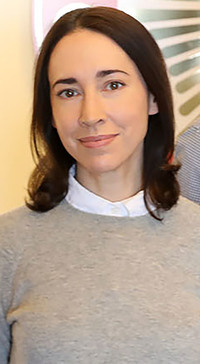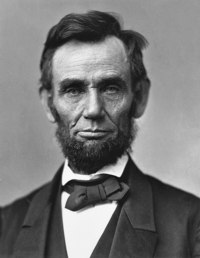More than 200 years after his birth, Lincoln continues to stand as a model of self-education
Speech delivered in 1838 in Springfield, Illinois, 'gives an insight into his view about the importance of the rule of law in a functioning republic,' says Monmouth College history professor.
MONMOUTH, Ill. (02/12/2024) — In the 215 years since he was born, Abraham Lincoln is remembered not only as the U.S. president who led the nation through the Civil War but also as an example of the early 19th century self-educated citizen.
"Lincoln did not have a lot of formal education, which is why we think of Lincoln as a self-educated man in the true sense of those words," said Monmouth history professor Valerie Deisinger. "He was self-educated in his childhood, as well as his professionalization."
Lincoln's self-education started when he was a boy in Kentucky and continued when his family moved to Indiana in 1816.
"Collectively, he had maybe a year of formal schooling, but then he pursued information on his own through reading and through borrowing books from people in his area," said Deisinger.
Shortly after Lincoln, who was born on Feb. 12, 1809, moved to Illinois in 1830, he decided to enter the law profession, where his self-education continued.
"In this period there were not that many institutions of higher education. People in Illinois, as well as throughout the newly settled Old Northwest, would have had to travel a great distance to attend any kind of institution of higher education," said Deisinger, who herself has a law degree in addition to a doctorate in history with an emphasis on legal history. "So it was common in the 1830s for someone who wanted to become a lawyer to engage in self-study."
In addition to studying the law privately, Lincoln utilized what was known as the lyceum movement, which was a kind of TED Talks of its day in the pre-Civil War era in the Northeast and Midwest.
"The lyceum movement especially appealed to people who aspired to join the professions and become more educated," said Deisinger. "In the absence of a modern university, individuals would get together -- for lectures, scientific discussions and philosophical conversations."
While participating in the lyceum movement didn't qualify someone to become a member of the bar, Deisinger said that "many young men who aspired to join the bar would participate in the lyceum also as a way of positioning themselves as the leading men in their community."
Lincoln achieved that through a speech he delivered at age 28 in January 1838 at the Young Men's Lyceum of Springfield. Delivered less than two years after he had been admitted to the Illinois bar, Lincoln gave a speech titled "The Perpetuation of Our Political Institutions," which provided an early glimpse into his political thoughts.
"In the speech, he talked about the importance of adherence to the rule of law," said Deisinger. "Lincoln said that even though people might not like the strict formalities of law, it's important that people accept the authority of law and not give in to the frenzy that sometimes occurs when the law isn't on the side of popular opinion. It's a really interesting speech that he gives because it gives an insight into his view about the importance of the rule of law in a functioning republic. You can see that even at this very early stage in his professional development this is a foundational principle for him."
Founded in 1853 and affiliated with the Presbyterian Church (U.S.A.), Monmouth College provides a transformative educational experience within a caring community of learners. A residential liberal arts college that is the birthplace of the women's fraternity movement, Monmouth College empowers students to realize their full potential, live meaningful lives, pursue successful careers, and shape their communities and the world through service and leadership.





